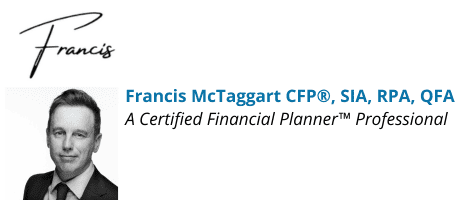Financial Survival Guide for New Parents!
Becoming a parent is an exciting and life-changing experience, but it also comes with new financial challenges.
From nappies to childcare, the costs can add up quickly.
However, with a bit of planning and smart money management, you can ease the financial strain and focus on enjoying this new chapter. Here’s your financial survival guide for new parents in Ireland.

1. Create a Baby Budget
The first step in preparing financially for parenthood is understanding the costs involved. Some key expenses to consider include:
- Maternity and paternity leave income adjustments
- Baby essentials (clothing, nappies, formula, pram, cot, car seat, etc.)
- Medical expenses (GP visits, hospital costs, vaccinations)
- Childcare costs (if applicable)
- Life insurance and wills
Track your income and expected expenses, then create a budget that accounts for these new costs.
2. Understand Your Maternity and Paternity Benefits
In Ireland, maternity benefit is available for up to 26 weeks, and paternity benefit covers two weeks.
Additionally, parents can avail of Parent’s Leave and Benefit for up to seven weeks.
Check your employer’s policies to see if they offer additional paid leave.
Understanding your entitlements helps you plan your finances effectively.
3. Start an Emergency Fund
A new baby can bring unexpected costs.
Aim to have three to six months’ worth of living expenses set aside in an easily accessible account.
Even if you can only save a small amount each month, building this fund will give you peace of mind.

4. Review Your Health Insurance and Medical Costs
If you have private health insurance, check if it covers maternity services and pediatric care. If you don’t have insurance, consider whether it makes sense for your family’s needs.
Public healthcare services, including maternity and children’s health checks, are free in Ireland, but some costs may arise for additional services.
5. Plan for Childcare Costs
Childcare in Ireland can be expensive, so it’s essential to plan ahead.
Research options such as creches, childminders, or family support.
The National Childcare Scheme (NCS) provides subsidies that can significantly reduce costs, so check your eligibility.

6. Adjust Your Long-Term Financial Plan
Having a child impacts your long-term financial goals, from homeownership to retirement planning. Now is a great time to:
- Review your savings and investment plans.
- Ensure you have adequate life insurance to protect your family’s future.
- Update your will and designate guardianship for your child.

7. Maximise Available Supports and Tax Benefits
Parents in Ireland may be entitled to financial supports, including:
- Child Benefit
- Working Family Payment (for lower-income families)
- ECCE scheme (providing free preschool for children aged 2 years and 8 months and older)
- Tax credits such as the Home Carer Tax Credit
Make sure you’re availing of all the supports you qualify for.
8. Be Smart About Baby Purchases
It’s easy to overspend on baby items. To keep costs down:
- Buy second-hand where possible.
- Borrow or swap items with friends and family.
- Stick to essentials—your baby doesn’t need the most expensive gear to be happy and healthy.
9. Think Ahead: Start Saving for Education
While it may seem far off, setting up a savings plan for your child’s education early can make a big difference.
A long-term investment plan like a regular contribution fund can help cover school and university costs in the future.

10. Seek Professional Advice
If you’re feeling overwhelmed by the financial aspects of parenthood, speaking with a financial planner can help. They can guide you in creating a plan tailored to your family’s needs, ensuring financial stability as you navigate this new journey.
Summary
Becoming a parent brings many joys, but it also requires careful financial planning.
By budgeting wisely, making the most of government supports, and planning for the future, you can reduce financial stress and focus on what truly matters—raising a happy, healthy child.
If you need help organising your finances as a new parent, reach out to us for personalised advice.
Get in Touch
Drop us an email at info@fortitudefp.ie or click here to schedule an initial call with us.
Visit our Insights – A hub of information covering saving, investing, financial planning, protection, and pension advice.


Our blog posts are intended for information purposes only and should not be interpreted as financial advice.
You should always engage the services of a fully qualified financial planner before entering any financial contract.
To discuss engaging the services of Fortitude Financial Planning please email us at info@fortitudefp.ie.
Fortitude Financial Planning Ltd will not be held responsible for any actions taken as a result of reading these blog posts.


 Production
Production